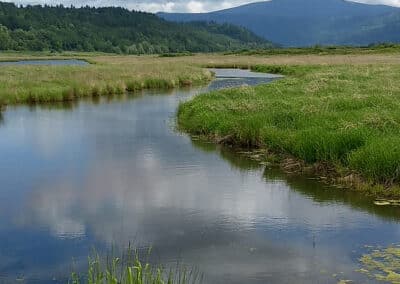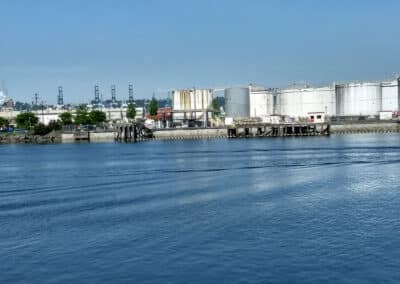Puget Sound Nutrient Pollution: Chapter 4
In Which Washington Ecology Refuses to Carry Out a 75-Year Old State Law that Requires Modern Sewage Treatment
by Nina Bell • March 14, 2020 •
OK, in chapters 2 and 3 of the saga about the failure to clean up Puget Sound, we saw that the Washington Department of Ecology doesn’t want to carry out the requirements of the federal Clean Water Act. Well, what about enforcing a state law called “AKART”? That’s a 75-year old law established by the Washington Legislature to keep pollution out of the environment regardless of whether it’s already caused a problem for human health, fish, or wildlife. What a concept!
This AKART thing stands for All Known and Available, and Reasonable, Treatment—which is a fancy way of saying modern sewage treatment is required. Quite simply, if there is a way of treating pollution that is known and available, then it must be evaluated to see if it’s reasonable, both technically and economically. This pollution prevention approach is not based on whether the pollution has already been proven to be harmful, it’s just assumed that the world is a safer, healthier place without it.
It may come as no surprise, to at least the cynics among you, that Ecology doesn’t evaluate AKART for sewage treatment plants when it issues new discharge permits. When we asked why not, Ecology has pointed to its rules that define what AKART is for sewage treatment.
So what are these rules? The answer might startle you. The rules are now 32 years old. Let me spell this out slowly. Ecology depends on 32-year old rules to define what “modern” sewage treatment is for Puget Sound.
Seriously? Have there really been no significant advances in sewage treatment in the last three decades?
Of course, there have been! All across this country, cities have installed state-of-the-art treatment technology that removes nutrient pollution and toxics from human sewage. So obviously Ecology’s 32-year old rules are as outdated as the 100-year old sewage treatment technology they require.
But Ecology has been steadfast: we can’t require Puget Sound cities to install better treatment than our rules require because, you know, our outdated rules.
Well, we said, fine, let’s talk about changing those absurdly outdated 32-year-old rules then! In 2018, we filed a petition with Ecology to change the rules. “Nope,” said Ecology. ‘We don’t want to fix the rules and comply with Washington’s AKART law because we would rather use the part of the federal Clean Water Act that requires us to clean up pollution after we made a mess.” Naturally I’m paraphrasing here, but not by much.
They said “no,” so we took them to court.
And, as expected, earlier this year, the judge said, yes, he cared about Puget Sound too but, no, he wasn’t going to second-guess a single thing that Ecology does or doesn’t do.
We have appealed this decision to Washington’s Court of Appeals. There we will find out whether Ecology is free to ignore what the Washington Legislature, in its wisdom, made a part of state law in 1945.
Stay tuned for Chapter 5, in which Ecology moves ahead with a law-breaking proposal to postpone cleaning up Puget Sound.



